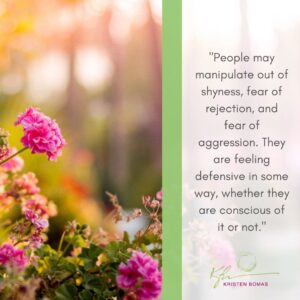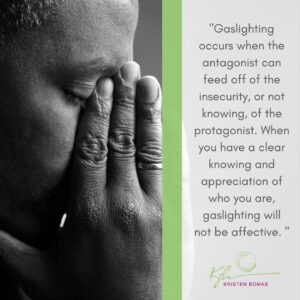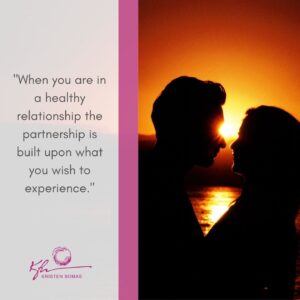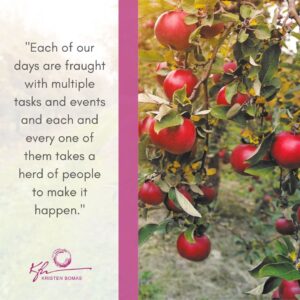
There have been myriad movies and books about going home for the holidays. Many are humorous, some are dark comedies and some are drama. Why is it that going home for the holidays is such an entertaining topic? Because a large majority of people can relate to the drama, craziness, and discord that surrounds a family gathering during the holidays. In this article, I will talk about how expectations, assumptions, judgments, and taking things personally are a stage set for the mastery of challenges within you. I will also offer some thoughts about mastering the holidays so that you can have a magical holiday season!
One of the most common stressors during the holidays is the anticipation of the dynamics of gathering with family. The stress at the time of the holidays is mostly due to the expectations: expectations of family; expectations of society. Expectations are external to your truth. You learn expectations. Some of you will think, “I set my own expectations.” But you don’t. You are parroting the expectations that have been put upon you by others. This becomes a critical understanding at the holidays because the expectations are more intense and prolific than at any other time of the year.
There is this expectation in society that says we should gather as a family during the holidays because that is what the holidays are about. There is a lot of hype about gathering with family. You can ask yourself what expectations you wish to experience during the holidays. Think of all the thoughts with the words should, supposed to, need to, or have to in them. That will alert you to the expectations that exist for you around the holidays. For example, I have to get a present for Aunt Suzy or I need to think of a way to avoid the political talks. Those thoughts will help you see where you feel the need to meet family dynamics or expectations rather than your own. If your truth were congruent with those thoughts, the above-listed words/phrases would, by nature, not be in your thoughts.
The most obvious and prevalent expectation during the holidays is for you to show up to, or host, the family gathering. Does it feel like you have to go so that you don’t disappoint them? Or maybe you feel you need to be there for other reasons. When you are struggling with the expectations and your feelings inside, you are not focused on you but instead are focused on the expectations of others. You have left your Self out of the holiday planning. Now, you can see that you are going into the holidays without your Self present.
If you are entering the holiday experience without being aware of your Self and what you wish to experience, then it makes it much easier for things to affect you personally. This is true for everyone. It is true because when you are looking outward at others and what they expect, you leave yourself open to engaging in the other person’s storyline. When you are participating in their story rather than yours, you are left unprotected from the assumptions and judgments made by the other person that might fly out of the other person’s mouth!
A family’s assumptions can spark defensiveness rather quickly because their assumptions anchor you to the past. It does not allow for the truth of who you are or the changes you have made in your life. Furthermore, your family members are the last people to truly know who you are. They tend to see you as you were “then” and even then, you were not the person they thought you to be!!!
The assumptions of family can leave you feeling alienated or without a sense of belonging. Clearly, this is not the experience you wish to have for the holidays. Most of you want to be known for who and what you are! It can be frustrating for you to have to defend against, rather than teach, family members. It often ignites feelings of being unknown, unseen or unwanted. I read an article regarding people who feel alienated during the holidays and the response was to try to get them to find a way to be with family!! UGH! That is just going to complicate the experience!
The anxiety and dread of going into a family gathering with their judgments and patterns or maybe even trauma of the past can be daunting to many of you. And yet you go. You may go because of the expectations of society as well as family. You may feel bad or wrong (guilt or shame) if you do what YOU wish to do and not go. You may go because you’re still trying and hoping for acknowledgment and love for who you are.
If you go to the gathering with the hope or anticipation of love and acceptance and yet, again, feel ostracized, you may struggle to find some camaraderie somewhere. Sometimes there are family members with whom you can align and then there can be those with whom you can’t. This can put some of you in the middle of conflicts or gossip and leave you feeling torn or forced to stand up for someone else. These patterns are the old family patterns. They are kept alive by assumptions and the need to rehash the past (whether outwardly or internally).
Too often families think they know one another but it’s all based on assumptions from history. In that assumption many patterns are kept alive, and many people are left unable to feel accepted as they have changed. If that resonates with you, you may feel like you must keep aspects of your life secret from the family. That’s very limiting because it means you must tuck away important pieces of who you are and what your life is all about. Imagine being transgender or maybe you’re in an interracial relationship and your family doesn’t know and you fear they will strongly disapprove. Do you go into the family keeping that secret? Those are huge parts of you and who you are! While your family is assuming you’re still the person of the past, they will bring up issues and patterns of the past to hold you in that position. This can easily put you on the defense and frustrate you. Often you can be too busy defending yourself to truly teach them who you are and how you feel today and how you felt then. This can again lead to feeling alienated or not belonging.
If family dynamics are uncomfortable, judgmental, and abusive, why do you go to the family gathering? Did you learn a long time ago that you need to do what they tell you to do and not what you wish to do? Did you learn a long time ago that if you do what you wish to do that it can have destructive/annihilating consequences? Judgments in family can be very destructive. When they become harsh and insulting then it is emotionally abusive. Judgment comes from a person who is dealing with their own fears of judgment. If you can at least walk away when this happens you will find yourself in a better place.
The fact that so many articles, books and movies have been set around the family dynamics of the holidays shows you how many people still have a very solid external focus in their life. If you are still trying to meet your family’s expectations or prove their assumptions and judgments wrong by being good enough, then you are not paying attention to the truth of you. In that truth is the knowing you are who you know your Self to be and you are absolutely good enough. And yet you know from family dynamics at the holidays that it can be a very disconcerting time when you’re hoping to feel acceptance, unity and approval.
When we talk about life mastery, we talk about living from the inside of yourself by knowing the experience you wish to have and then manifesting that experience. The holidays are a really important time to ask yourself how you want to feel and what you wish to experience for each of the holidays. For a minute, forget everybody in your life. What would you like to experience? If you’ve lost all your family and you feel somewhat orphaned and you would really love to feel a part of a family for the holidays, then ask yourself: of your friends, to whom you feel closest. Talk to that friend or friends and let them know that you would love to not be alone during the holidays. Ask them what they are doing. Or create a holiday event at your house and invite those friends who don’t go home for the holidays or don’t want to go home for the holidays. Step into your experience by creating it.
In mastery it is about healing your Self so that all your relationships heal. Change the way you respond to the patterns of others, and you will change the way they interact with you. Your family plays a critical part in this life. You will see a difference in the way your family responds to you when you heal your challenges enough to know the experience you wish to have and stay in that space, even around family. As my clients heal, the most common thing I hear is that when they go home, they feel like themselves (in contrast to feeling the shift inside as they acquiesce to family dynamics). Too often people can feel themselves shift back into the old patterns of family when surrounded by them.
When you look at going home for the holidays through the eyes of mastery, you want to address several personal questions:
- What is home to you?
- What would you like to experience for each of the holidays?
- Where do I lose my ability to be present to my Self?
- Do I have hope for a different, more positive, experience?
- Do I still see the positives of what can be rather than accepting what has been?
More often than not your answers to these questions will allow you to see how your family sees all of this differently than do you. This year, honor your Self and let your Self dream up the perfect holiday experience for you. Take the time to be aware of the challenges that haunt you from your history and begin healing.
What would it be like if each person in your family were able to be present during gatherings? What if you could all teach about yourselves and ask about others? If you could all be present and open there would be no historic challenges present at the gatherings. Ironically, there may not be any push for family to unite. You would unite only because you choose to and not because the holiday season, or one another, expects you to.
In conclusion, if you want to believe that going back with family is going to be warm and cozy and wonderfully accepting and loving, you are going to find yourself struggling with the old patterns and dynamics. That is why many people cringe or stress about gathering with family for the holidays. This year, reflect upon the holidays and ask yourself, honestly, what worked for you and what didn’t. Whatever didn’t, those are the challenges that you can be aware can be healed, if you choose. Then ask yourself what YOU would like to experience for this holiday and create it! Let this be a grand new beginning for you in YOUR life. Promise your Self a beautiful holiday season with or without the expectations of family.














